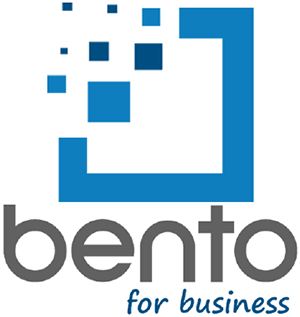
The best construction managers constantly search for new ways to save time and money. It’s a challenge juggling multiple worksites, workers and construction expenses. With this in mind, some of the industry’s top performers weighed in on old and new methods for consistently reaching their goals. While some are time-honored favorites, others might provide the key for reducing waste and stress across the board. Check out the following 10 ways construction managers save time and manage cost.
1. Embrace the Design-Assist Model
If possible, construction managers should make sure they’re consulted on project design as early as possible. When designers, engineers and construction managers collaborate from the beginning of the project, they’re able to avoid common problems. During the traditional design-bid-build process, teams run into issues which require RFIs, postponements and changes to construction plans, and add to the budget. With design-assist (DA) management, the majority of these issues get worked out ahead of time.
DA also creates a holistic environment in which team members work together instead of competing with one another. Everyone is working together to meet the same overall goals. Because of that, members of different departments are more likely to reach out to one another when they need help. Working together, they’re more likely to arrive at solutions that are more efficient and cost effective. When DA is not a possibility, construction managers should do what they can to encourage interdisciplinary collaboration.
Obviously, combing through plans for potential conflicts can avoid investing time and money in work that doesn’t work out. More than anything though, this step requires effective communication skills. Managers who are able to share their concerns and ask the right people for input will always be one step ahead.
2. Prioritize Communication Skills
Mistakes on worksites sometimes boil down to miscommunication. When this happens, morale drops and productivity falls right along with it. The easiest way to prevent these issues is by setting clear expectations and goals.
Of course, that takes prioritizing another aspect of communication. The best construction managers listen to the opinions of everyone working with them, from a project owner or engineer to foremen and field workers.
It also means asking questions to clarify issues before forging ahead. It takes a few minutes to double-check figures, especially when last-minute changes are involved. It could take weeks to correct a mistake in manufacturing. That’s the kind of mistake that can damage a construction company’s reputation.
3. Put Technology to Use When Preparing Quantity Takeoffs
Where do construction costs get away from project managers? Estimating the amount of supplies needed is an art, and it’s one no one has perfected. In fact, preparing a document on necessary materials and tools is a skill that can only be developed through years of practice. Even then, there are many factors which increase a construction manager’s chances of getting the numbers wrong.
What happens then? Projects get put on hold while new purchase orders are approved, new materials are ordered, or alternatively, as excess materials go to waste. Construction managers can minimize this to a degree by having a quick-order system available to key employees.
Today, there are a number of high-performance construction estimate software programs designed to do this job precisely in seconds. While the risk of error still exists, it’s lower than many construction managers think. This one step can not only help waste mistakes in material ordering, but it can free up time and alleviate stress.
4. Purchase Quality Materials
Most construction managers remember the horror of Chinese red steel. When the product first hit the market, companies flooded to get in on the rock-bottom prices. Then their buildings started to fail. Buying poor-quality materials opens companies up to liabilities above and beyond the bottom line.
How can projects save while purchasing high-quality goods? Thoughtful financing is method No. 1. Store cards can charge 20% or more in interest. Using a payment option with a zero percent offer, or better yet, cashback, for expenditures pays off big in the long run. New tools make it easy to control employee spending while taking advantage of financial incentives.
5. Procure the Right Equipment for the Job
People who’ve been in the business for a long time to fall back on the familiar, but there are advancements in tool tech every year aimed at making jobs faster and less expensive. Snagging every member of a crew a smart helmet might be a bit much, but building information modeling (BIM) systems could shave hours and dollars off a project by improving efficiency from the get-go.
Construction managers also need to make sure they have enough equipment for every hand on deck. There’s nothing worse than driving by a worksite only to see guys standing around because they physically can’t get their jobs done. Employee purchasing policies that reflect modern solutions remove the obstacles that prevent workers from solving their own problems. Most projects benefit when workers are able to get those materials when they need them. Now, there are systems in place to make it safer and easier for that to happen.
6. Set Reasonable Work Hours
Overtime is a frequent go-to for construction managers when jobs fall behind, but is it effective? Studies show that as man-hours go up in the construction industry, efficiency falls. The good news is that the same construction estimate software used to determine the appropriate amount of materials often do a good job of estimating how many hours will be needed for workers to complete a project.
Additionally, construction managers can use software to monitor the productivity of each employee on a job. Not only does this make it simple to see who is pulling their own weight and who needs extra training. It helps determine which workers are the best investment when it comes to overtime and gives managers a way to see when the number of work hours starts to impact productivity.
7. Hire Enough Bodies to do the Work
A survey on productivity showed the construction industry often goes by the rule of “less is more.” Hiring fewer workers means higher pay per worker, but it can also hurt a project’s budget. Being overworked leads to employee fatigue and low morale. It feeds high turnover rates too, which can mean serious setbacks.
Construction-specific staffing solutions can help manage multiple problems. It’s a gamble for construction managers to rely on workers sourced by someone outside the company, but it might be a bigger risk to rely on overtime and an overstressed workforce. Managers should look for staffing companies with the ability to fill roles quickly and have a history of building reliable teams. They also handle special needs, like sourcing a worker with crane certification or a Class A license.
8. Create Daily, Weekly, Monthly & Quarterly Goals
Every project has milestones. The most effective construction managers break them down into bite-size objectives they can track day by day, but also on a weekly, monthly and quarterly basis. Having clear-cut goals makes it easier to set expectations for subordinates and keeps teams on task. It also helps identify where setbacks happen so project managers can prevent them in the future.
Super-effective managers across industries use time blocking to maximize the time they have available. While it sounds overly restrictive, the method forces managers to carefully plan their tasks for each day. How does it work? First, managers break their workdays down into 5-minute segments. Then, they figure out how many segments they’ll need for each of their daily responsibilities.
While nothing can prevent the surprises bound to pop up during the day, time blocking helps maintain focus. Over time, managers find they become better at estimating how much time they’ll need for different activities too.
9. Plan for Fun, Practical Meetings
The word “meeting” can make the workers at any site groan. When planned carefully, meetings will motivate partners and employees to get their jobs done by—or before—deadline. The key is being thorough.
Construction managers should decide beforehand on a few key points to cover during the meeting. They should inform attendees of the agenda in advance. Minutes should be recorded during the meeting and shared with everyone after the fact.
Not only does this keep everyone focused, but it makes them feel valued. Nothing is worse than having supervisors who simultaneously demand quick results and waste time. Boring meetings without a clear objective are disrespectful, while the opposite boost morale high.
10. Use New Payment Options to Empower Your Team
The latest financial tools make it easy to run a project without the hassle of time waste and running back and forth. Bento for Business is a favorite, as it offers the versatility construction crews need at every level. Here’s how it works.
Construction managers or project owners can load a certain amount of money into a Bento for Business account. Debit cards linked to the account make it easy for employees to make purchases without direct supervision. On the backend, the administrator for the account can set an endless number of guidelines for how the money is used—and who uses it. This cuts out a need for receipts and for messy reimbursement policies on employee spending.
This empowers teams to solve their own problems—from purchasing tools to paying for travel and other employee expenses—without putting the company card at risk. In fact, Bento for Business offers additional security protection by way of virtual debit cards. Instead of linking your company credit card to a dozen online merchants, administrators can create a separate Bento card for each one. That way, if hackers attack, there’s not a risk of the number being used elsewhere. There’s also no reason to go through the hassle of changing payment information with each of those merchants either.
Most importantly, Bento for Business makes keeping track of construction finance a seamless process. Construction managers can generate fuel reports, food reports, materials, lodging, or all the combined employee purchases from one project or one team with the click of a button.
For mor information, click here.

